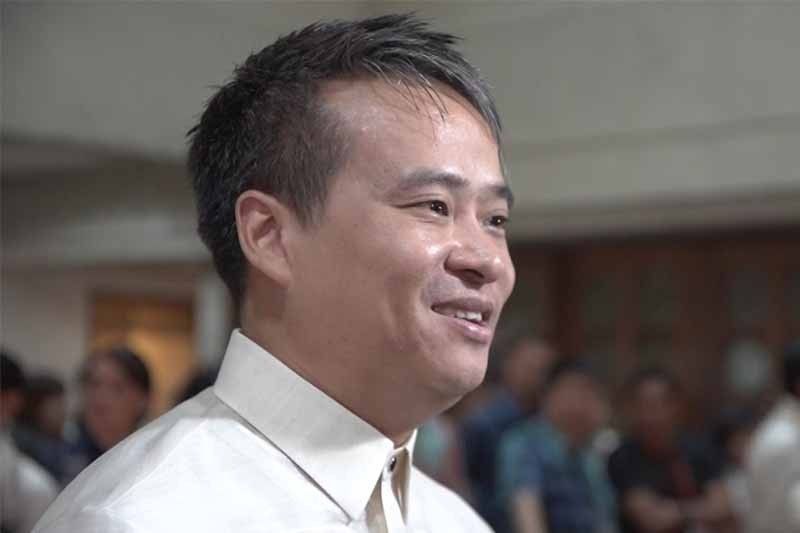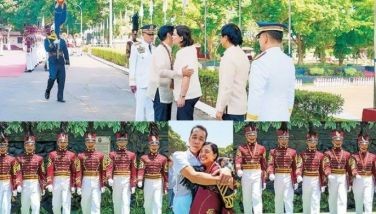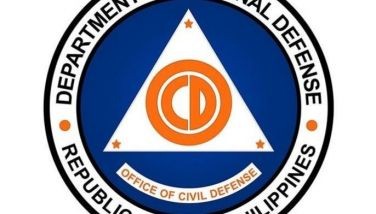No warrant, no entry – senators

MANILA, Philippines — The order for the police to round up coronavirus disease 2019 (COVID-19) patients from their homes is not only impractical and dangerous, but also unconstitutional, senators warned yesterday.
Senate Minority Leader Franklin Drilon and Sen. Joel Villanueva, in separate interviews, said such a move violates the Bill of Rights in the Constitution where people have the right to be secure in their homes against unreasonable searches and seizures.
“There is no question that there is a need to protect the people, but we should do it with due deference to the Constitution. The pandemic does not set aside the constitutional restrictions and protection under the Bill of Rights,” Drilon told the Kapihan sa Manila Bay online media forum.
He said that if the government had acted “prudently and expeditiously, we would not have reached this point where our state security forces are being commanded to desecrate our inviolable constitutional right to be secure in their persons, houses ... against unreasonable searches and seizures of whatever nature and for any purpose.”
“And for this reason, I say: ‘No warrant, no entry!’” Drilon added.
He said the opposition of the public against the police was a manifestation of their mistrust.
“Because of what has happened in the past, you cannot blame the people if they fear that it would be used to oppress,” Drilon said.
He said the Senate legislated all the necessary measures to battle the crisis, and yet in the past months, the government has “failed over and over again to flatten the curve.”
“Worse, the infection has extended far beyond Metro Manila and Luzon and now we see the contagion seemingly spreading in almost all the four corners of our country. As a last resort and with a total lack of imagination, the IATF (Inter-Agency Task Force) is about to embark on violating our rights,” Drilon said.
He said officials need to be creative in finding solutions, “not fascist actions to demand submission which, by the way, has not worked for the past few months.”
Villanueva said the measure was not only unconstitutional but also impractical and dangerous as house-to-house searches may actually spread infections.
He also said such a move will only create great stress and anxiety among the people, adding the claim that forceful measures are necessary due to Filipinos’ stubbornness is not entirely true.
Villanueva lamented that while many top police officers and other government officials were not punished for violating strict health protocols, ordinary Filipinos are being treated with harshness in enforcing restrictions.
Senate President Pro Tempore Ralph Recto said the intention of the IATF was good but the poor messaging has not elicited the support of Filipinos.
“Health-related announcements are better left to doctors. If the nation is the patient, let those trained to have good bedside manners announce the treatment. We should do it in a language so clear that it will move the nation as one to compliance, instead of through unclear statements that trigger ridicule or resistance,” Recto said in a statement.
CHR warning
The Commission on Human Rights (CHR) warned the government of the plan to deploy security forces to search for COVID-19 patients and transfer them to quarantine facilities run by local government units.
In a statement, the CHR said the constitutional right of Filipinos to be secure in their houses, which makes illegal the forcible entry, search, arrest and seizure of individuals inside the safety of their homes without a determined probable cause.
It said the recent pronouncement of the government to assign state security forces, police officers and local government unit representatives to conduct house-to-house searches “is susceptible to overreach in terms of guaranteeing the right to privacy and right of individuals to be secure in their abode.”
“Thus, forcible entry and transfer of an individual to an isolation facility under the guise of health and safety must be avoided,” it added,
The CHR said it recognizes the efforts of the government in addressing this issue through the implementation of more proactive contact tracing efforts to help address the growing health problems in the country.
“However, as the commission has previously stressed, protecting public health must not come at the expense or the diminution of other rights,” it said.
“The human rights principle of interdependence and interrelatedness makes clear that the fulfillment of one right often depends, either wholly or in part, upon the fulfillment of others,” added the human rights body.
It noted that Republic Act 11332, or the law on reporting communicable diseases, guarantees the right to privacy and provides that collected data must solely be used for public health concerns.
The CHR said the use of personal information as part of contact tracing efforts should only be done in accordance with the Data Privacy Act, while clear implementing rules and regulations on contact tracing efforts of the government must be in place to ensure that the release of private data is done for public health reasons only.
“In our efforts to prevent the prolonged spread of the pandemic, we urge the government to be more circumspect in enacting contact tracing actions and refrain from utilizing sweeping measures that may lead to the diminution of the rights of individuals,” said the commission.
“As all human rights are interrelated and interdependent, the protection of all rights must be balanced,” it added.
Militant party-list lawmakers yesterday joined the growing objection to the move of the government to conduct house-to-house tracing of COVID-19 patients.
Makati City Mayor Abby Binay warned the government that the proposal to search for persons infected with the coronavirus and undergoing home quarantine could cause fear among concerned residents.
“My concern is that this will have a negative effect,” she told radio station dzBB yesterday.
Binay said COVID-19 patients under home quarantine might deny that they were infected just to avoid being transferred to a government quarantine facility.
“The patient might not disclose that he is sick because he is afraid,” she added.
While the local government might have the list of infected persons and the resources to bring them to government quarantine, Binay explained that much still depends on the “honesty” of infected persons.
San Juan City Mayor Francis Zamora said they would wait for the Department of the Interior and Local Government (DILG) to issue a directive before house-to-house search for COVID patients is implemented.
“I’m still waiting for the directive so we could read if it would be an official directive from the DILG and the IATF, (and if so) then we will do that,” Zamora said yesterday.
Bayan Muna Reps. Carlos Zarate and Eufemia Cullamat and Gabriela Rep. Arlene Brosas likened Oplan Kalinga – the operations of police to find mild and asymptomatic COVID-19 patients under home quarantine and transfer them to isolation facilities – to “Hitler’s SS and Gestapo actions.”
“They should junk this militarist Gestapo-like order and instead conduct true widespread mass testings and contact tracing then treat the identified COVID positives because these are the only scientific ways to stop the spread of this deadly disease,” Zarate said in a statement, referring to the police of Nazi Germany.
He claimed that such move, which their group branded as “Oplan Tokhang CoVid edition,” is a violation of people’s basic right as enshrined in the Constitution.
He cited Article III, Section 2 of the Charter, which states that “the right of the people to be secure in their persons, houses, papers and effects against unreasonable searches and seizures of whatever nature and for any purpose shall be inviolable.”
Cullamat said that the latest action only proves that the government is helpless in combating the pandemic.
“Symptomatic COVID patients cannot even be accommodated anymore by hospitals and facilities. Why can’t they just tap barangay health workers in tracing asymptomatic patients? Letting police do the job will just expose it to abuses,” she pointed out.
Brosas, for her part, described the action as “another state terror tactic.”
In a statement issued yesterday, Karapatan secretary general Cristina Palabay said the proposal would just “further facilitate State terror and police brutality in communities.”
Palabay said the house-to-house searches might be used as “fronts for the surveillance, profiling and harassment of activists and ordinary folks mere days before the Anti-Terrorism Act takes effect.”
The peasant group Kilusang Magbubukid ng Pilipinas (KMP) said Oplan Kalinga could further sow fear in communities.
The National Democratic Front-Negros and militant group Bayan-Negros slammed the house-to-house search of COVID 19 patients, saying it is obviously counter-insurgent and anti-people in nature, as well as active state terrorism. Janvic Mateo, Edu Punay, Elizabeth Marcelo, Ghio Ong, Neil Jaysol Servallos, Ding Cervantes, Gilbert Bayoran
- Latest
- Trending



























